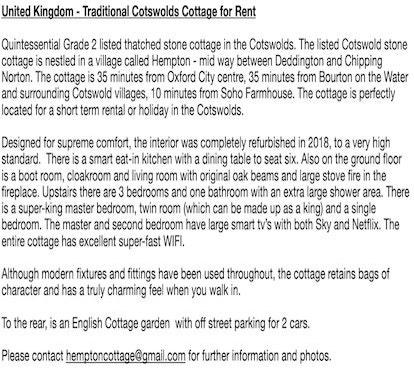THE HARVARD CRIMSON | February 6, 2020
Page 4
Editorial The Crimson Editorial board
OP-ED
Harvard, Not Students, Should Pay for Local Food Options
Leave Marijuana to the Market
C
ommonWealth Kitchen, a Dorchester nonprofit, is bringing local food businesses into Harvard kitchens. The nonprofit rents out kitchen space to local food start-ups, many of which are minority-owned, and then connects them with large operations in need of food — including hospitals, offices, and, universities. Last summer, Harvard and other local universities partnered with CommonWealth to purchase products from these start-ups. Though it is more expensive for the University to buy food products from these small vendors as opposed to large wholesalers, the appeal of local food seems to outweigh this cost. We appreciate the positive effects of Harvard’s initiative to support local vendors and give back to the surrounding community. Given its large wealth and influence, as well as its sometimes pernicious effects on the surrounding neighborhoods, we have repeatedly asked that Harvard give back more to the greater Cambridge and Boston community. Sourcing food from these local businesses is an important method of support, and we are also happy to see the
increased diversity in food options that the deal seems poised to yield. As many of the small food startups in question are minority-owned have culinary styles that might be unknown to a lot of students, we also hope that HUDS will display information on the origins of these local products, if possible. But beyond these hopes, it is vitally important that Harvard itself absorb the extra cost associated with buying local food rather than passing it onto students. Tuition is already a serious strain on many students and their families, and in improving food options Harvard must not worsen this financial burden. Particularly for middle-income students not on financial aid who would bear the full weight of the cost increase, we are apprehensive about the effect of these new purchases. Also, it is important that this outsourcing does not disadvantage existing HUDS workers. The last HUDS strike is still in recent memory, so we are very aware of their struggles. If the increased cost of local food procurement adversely affects HUDS workers, that offers another reason for caution. We believe that Harvard
should absolutely expand the variety of food options and work with local businesses. But in doing so it cannot pass on the costs of that decision to students and employees. In addition, as Harvard thinks about expanding food options in a way that takes into account a diversity of backgrounds, we also hope that it thinks about offering more inclusive meals for those with dietary restrictions — including vegan, vegetarian, Halal, and Kosher options, to name just a few — into the daily menu. Students with these restrictions deserve the same quality of food as everyone else, and we hope the University seizes on this newfound relationship with local food suppliers to ensure they get it. This staff editorial solely represents the majority view of The Crimson Editorial Board. It is the product of discussions at regular Editorial Board meetings. In order to ensure the impartiality of our journalism, Crimson editors who choose to opine and vote at these meetings are not involved in the reporting of articles on similar topics.
Submit an Op-Ed Today!
The Crimson @thecrimson Column
Transactional Experiences Andrew W. Liang A box of chocolates
A
few weeks ago, as I was seeing Morocco with a few friends, we decided to get away from the coastal cities and visit the full interior of the country. Luckily, we found a driver online who was willing to take us. The deal? For several hundred U.S. dollars, he agreed to drive us more than 22 hours across three days, from the country’s coast to the southern border — and then back. The full drive traversed mountain ranges, limestone canyons, and the world’s largest non-polar desert. The terrain was insane; a one-way trip inland lasted roughly 12 hours, if you didn’t take too long for lunch. In between naps and gazes out the window, I couldn’t help but think of the remarkable nature of this transaction. Here was a man we had never met before. Yet, he drove us — at times, more than 10 hours a day — across an en-
There is an unintended beauty to free enterprise, and we’ve become so accustomed that we tend to ignore it. tire country. He was a citizen who’d never been beyond his nation’s borders, and we were three college students from another continent. The one thing we knew we had in common? A single price upon which we agreed. Smith famously wrote that “it is not from the benevolence of the butcher, the brewer, or the baker that we expect our dinner, but from their regard to their own self-interest.” As so many on campus and elsewhere castigate the free market, characterizing it as greedy and immoral, we would do well to remember Smith’s favorable view of transactions. The word “transaction” unfortunately possesses a negative connotation. After all, Dean Khurana tells incoming freshman classes to strive for “transformative,” not “transactional” experiences in college. Certainly, friendships should not be transactional. But for many of the things that we have in our lives, a trans-
action was at work (and happily so). As you know already, such trades helped you to procure the phone you’re using, the clothes you’re wearing, the Ubers you ride in, and the food that you eat. Smith’s great insight — which holds true today — is that when everybody is pursuing their own self-interest, the unintended consequence is that both people’s needs and desires are fulfilled. The market revolves around one defining mechanism: if there is profit to be made, sellers are willing to move mountains to make it. Take the commonly cited — and controversial — example of prices after a hurricane. Let’s say that right as a storm rolls through, flooding hits many nearby grocery stores that sell paper towels. Because of the suddenly limited supply, remaining stores are able to charge much higher prices, so the cost of paper towels skyrockets from $1 to $25. At first glance, the act of profiting so handsomely from a disaster seems greedy and unjust. So why shouldn’t we establish a law to say that paper towel prices cannot rise in natural disasters? Such controls were common in the 1970s under presidents Nixon through Carter; the price of gas was limited to an artificially low price by well-meaning politicians. But the results spoke for themselves. In this situation, if there were four individuals who needed gas, the one who got it was simply the first one to arrive at the station. Because the price was so low, the first person in line could fill up their entire tank, leaving no gas for the other three. Price controls encouraged overconsumption when supply was low. The lesson here is that naturally high prices serve the unintended purpose of encouraging lower consumption. The same goes for the paper towels in our hurricane example. With a higher price, households now will likely buy only one paper towel roll instead of their usual four; in return, many more households are able to have a roll. This is a far more equitable distribution than if the first few people were able to buy all the paper towels, leaving everyone else with none. In turn, paper towel sellers elsewhere
naturally act like the market’s version of FEMA; as they see the higher prices in this area, they’ll ship more paper towels in, trying to capitalize. And the supply will keep on increasing until the price comes down to its normal level. Let’s say instead the government tries to impose both a price and a quantity
At first glance, the act of profiting so handsomely from a disaster seems greedy and unjust. control: every household can only buy one roll, but at an affordable price. The problem? There is no extra profit to be made, and paper towel sellers from elsewhere don’t have the incentive to come in and provide more, leaving the supply low. Lastly, if we’re worried about the individuals in the area whose incomes are too low, the government should subsidize the individuals, so they can be guaranteed a $25 paper towel. But the answer should be to make markets more free, not to reduce their effectiveness; if the government puts a ceiling on the price, no matter how well-meaning it is, the poorest individuals cannot be guaranteed even one roll. Few would consider this more moral or fair than the market outcome. It’s popular today to complain about capitalism, and the complaints undoubtedly are made with good intentions. But noble intentions here do not mean good consequences. There is an unintended beauty to free enterprise, and we’ve become so accustomed that we tend to ignore it. So we denounce the free markets, self-interest, and the business world. After all, it’s easy to tear something down. It’s much harder to remember exactly what is at stake of being lost. —Andrew W. Liang ’21, a Crimson editorial editor, is a Social Studies concentrator in Adams House. His column appears on alternate Thursdays.
By Jonathan l. Katzman
I
n a January 24 ruling, a Middlesex Superior Court judge lifted Cambridge’s two-year moratorium on certain cannabis sales permits. The moratorium, passed by the Cambridge City Council in September 2019, gave historically marginalized groups — including women, minorities, and those who have been impacted by the war on drugs — a two-year window to be the sole operators of recreational marijuana shops in the city. Though the moratorium was creative and well-intentioned, it was a complete failure in reality. Not only was it unconstitutional as argued by the judge, but it was also based on economic fallacies and misconceptions of the cannabis market. The Cambridge City Council showed either apathy or ignorance for standard economic theory when crafting the policy. The resulting moratorium helped no marginalized groups and effectively banned the sale of recreational cannabis in Cambridge. Despite its short-lived nature, the deficiencies of the moratorium are indisputable. Not one recreational marijuana dispensary is open in Cambridge even though 71.3 percent of Cambridge voters supported full marijuana legalization during the 2016 Massachusetts referendum. The moratorium added restrictions on permits — stunting supply in an already over-regulated sector. In other towns, many medical marijuana dispensaries applied for and received permits to sell recreationally. The moratorium prevented Cambridge’s existing medical marijuana dispensaries from pursuing this natural transition. As a result, Cambridge has no recreational dispensaries while weed shops have popped up in surrounding Massachusetts towns. Though the moratorium effectively constituted a ban on cannabis sales in Cambridge, the intentions of the policymakers were noble. The City Council was trying to address serious issues in the legal cannabis market. White, upper-class entrepreneurs dominate the market in many states. Black people, who suffered disproportionately as a result of the war on drugs, have not reaped the benefits of legalization. Only 1 percent of dispensaries nationwide are owned by black people. The moratorium righteously attempted to help the victims of the war on drugs reap the benefits of legalization. So, why haven’t minorities utilized the head start? While the moratorium effectively prevented white males from joining the market, it did not address the underlying issues that have kept minorities out of the legal cannabis industry. Federal banking regulations prevent many cannabis enterprises from receiving loans and opening bank accounts. As a result, it is very difficult to open a weed dispensary without significant liquid capital, which most aspiring small business owners, especially minorities, do not possess. Members of minority groups in Cambridge most likely had difficulty financing their recreational marijuana companies and, as a result, could not benefit from the banishment of competition. Essentially, the moratorium did not address the fundamental issues of access to capital that have prevented low- and middle-income Americans from accessing the market. Competition was not the fundamental problem in the market, so its absence did not help aspiring small business owners. Though the moratorium did not directly hurt aspiring minority business owners, it did hurt owners of medical marijuana dispensaries and Cambridge consumers. So, the moratorium failed. Now, what can be done to help both Cambridge’s consumers and historically marginalized groups? The first necessary step is the deregulation of the cannabis market. Ideally, the striking down of the moratorium should allow for an influx in competition. However, city officials such as Quinton Zondervan have indicated support to appeal the ruling and use other options to “get in the way” of existing medical marijuana dispensaries seeking permits to sell recreationally. These efforts to further delay the implementation of recreational cannabis sales must be strongly resisted. Four years after its popular legalization, cannabis should finally be sold recreationally in Cambridge. But, what about the historically marginalized people that will likely be left in this free-market framework? The moratorium failed because it did not address the underlying financial barriers preventing middle-class minorities from entering the legal marijuana market. New policies providing tax breaks, subsidies, and access to low-interest loans would alleviate many financial impediments without creating massive market distortions. Minorities do not need a head start to enter the cannabis market. In fact, structural issues prevent the historically marginalized from capitalizing on head starts. Policymakers should focus on providing owners of weed shops access to loans and the banking system. Allaying the obstructions of banking regulations is the only way to change an industry that has essentially become a white, upper-class marijuana hegemony. The Cambridge City Council should continue to propose creative policy solutions to complex social issues. However, they should also ensure that future proposals are effective and viable. In this case, the City Council must do a closer analysis of the economic complexities of the cannabis industry to create a policy that gives Cantabrigians access to safe, legal marijuana and grants historically marginalized people the opportunity to open their own profitable businesses.
—Jonathan L. Katzman ’22, a Crimson Editorial editor, is a History concentrator in Dunster House.




